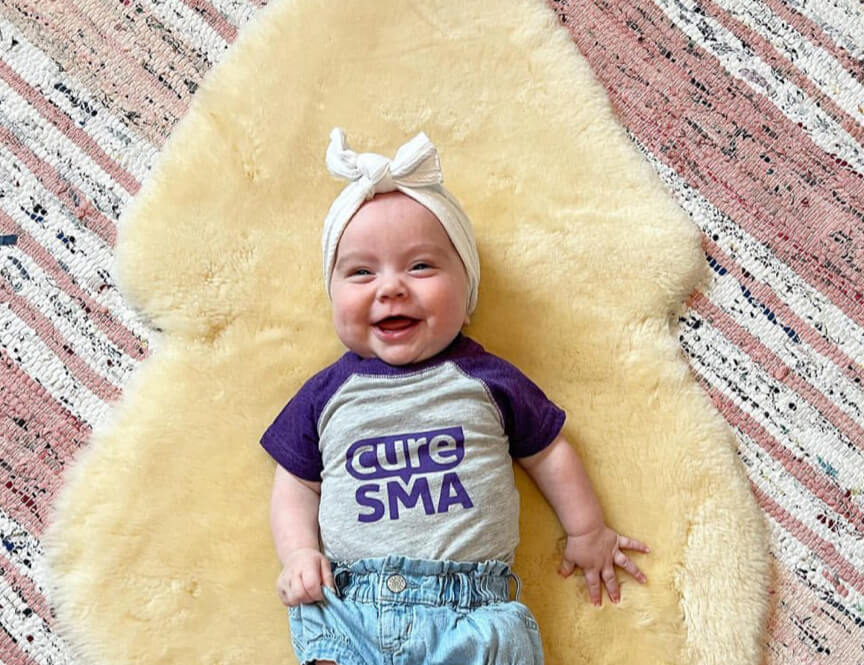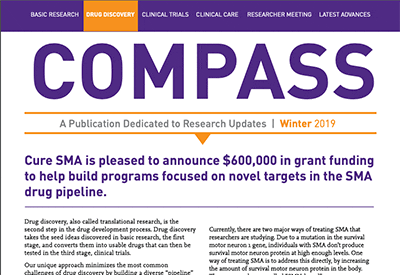AveXis recently released new data from the Phase 1 clinical trial of AVXS-101, a gene therapy program to treat SMA. The interim data through July 1 showed no “events.” The data also showed continued motor function improvement. AveXis has requested a Type B Meeting with the FDA to discuss SMA Type 1 clinical development pathway.
New Data Released
Data as of July 1, 2016, showed AVXS-101 continued to demonstrate a favorable safety profile, with no new treatment-related safety or tolerability concerns identified. All patients in both Cohort 1 (low dose) and Cohort 2 (proposed therapeutic dose) remained without an “event,” defined as death or until a patient requires at least 16 hours per day of ventilation support for breathing for greater than two weeks in the absence of an acute reversible illness, or perioperatively. Since July 1, one patient in the low-dose cohort has reached a ventilation endpoint, described in further detail below. As of July 1, the mean motor function scores in both dosing cohorts continued to increase, with 25% of patients in Cohort 2 having achieved motor function in a range considered to be normal.
“We continue to be encouraged with this interim data for AVXS-101 and are eager to collaborate with the FDA via the breakthrough designation process to determine next steps in the development pathway for SMA Type 1, and we have submitted a Type B meeting request with the agency to facilitate this discussion,” said Sean Nolan, President and Chief Executive Officer of AveXis. “We expect several key developments in the second half of the year including the presentation of developmental milestone data from our ongoing SMA Type 1 study, providing additional clarity on the development path for the Type 1 program and we expect to initiate our initial safety and dosing study in SMA Type 2 patients.”
Interim Phase 1 Data as of July 1, 2016
- AVXS-101 appeared to have a favorable safety profile and to be generally well tolerated in patients studied, with no new treatment-related adverse events reported.
- Mean increases in motor function compared to baseline of 9.0 points in Cohort 1 and 23.3 points in Cohort 2 in CHOP-INTEND scores were observed. The Children’s Hospital of Philadelphia Infant Test of Neuromuscular Disorders (CHOP-INTEND) is a test developed to measure motor skills of patients with SMA Type 1.
“These data demonstrate rapid, sustained and marked improvements in motor function as measured by CHOP-INTEND,” said Suku Nagendran, MD, Senior Vice President and Chief Medical Officer, AveXis. “Compared with the data presented as of April 1, 2016, the positive impact on average motor function scores increased from 8.7 to 9.0 points and from 19.2 to 23.3 points in Cohorts 1 and 2, respectively. It appears that both dose and baseline motor function are key factors in determining the degree of treatment response. Based on our data to date, early diagnosis and treatment appear to be critical for optimal outcomes in this population.”
Recent Highlights
- Breakthrough Therapy Designation: On July 20, 2016, AveXis reported that the U.S. Food and Drug Administration (FDA) had granted Breakthrough Therapy Designation for AVXS-101 for the treatment of SMA Type 1 in pediatric patients based on preliminary clinical results from the ongoing trial of AVXS-101. In granting the designation, the FDA indicated that as a next step that AveXis should submit a Type B meeting request to facilitate a comprehensive discussion of the development pathway. AveXis has subsequently submitted the meeting request.
- Pulmonary Support Data: On May 15, 2016, Richard Shell, MD, member of the Section of Pulmonary Medicine at Nationwide Children’s Hospital and an Associate Professor of Clinical Pediatrics at The Ohio State University College of Medicine, presented additional pulmonary support data at the International Conference of the American Thoracic Society in San Francisco.
Targeted Clinical Development Milestones and Presentations
- Provide quarterly updates on the ongoing Phase 1 trial of AVXS-101 in SMA Type 1.
- Initiate a Phase 1 safety and dosing study of AVXS-101 via intrathecal (IT) delivery in patients with SMA Type 2 in the second half of 2016.
- Disclose motor development milestones at a medical meeting in the second half of 2016.
- Provide an update on the SMA Type 1 development path in the second half of 2016 after meeting with FDA.
- Report 13.6 months of data for all patients in the ongoing SMA Type 1 Phase 1 trial in the first quarter of 2017.
- Initiate pivotal trials of AVXS-101 in patients with SMA Type 1 in the United States and Europe in the first half of 2017.
Cure SMA Funds Multiple Gene Therapy Approaches
Beginning in 2010, Cure SMA made a series of grants to Nationwide Children’s Hospital to study gene therapy, also called gene transfer. Spinal muscular atrophy (SMA) is caused by a mutation in the survival motor neuron 1 gene (SMN1). Because of this mutation, the individual does not produce enough survival motor neuron (SMN) protein.
Gene transfer may increase SMN levels by using a virus, called a vector, to deliver the SMN1 gene to affected cells. Dr. Brian Kaspar and Dr. Mendell discovered that Adeno-associated virus serotype 9 (AAV9) had the unique ability to cross the blood brain barrier and the Blood-Cerebrospinal Fluid Barrier (CSF).
Currently, two approaches are being studied: an injection into a vein, known as systemic delivery, which is the process being tested in this current trial, and delivery directly into the cerebrospinal spinal fluid (CSF), a process known as CSF-delivered gene therapy. CSF-delivered gene therapy has shown promise for reducing the amount of drug required for larger and older patients. This could eventually make the treatment accessible to a wider population.
In total, Cure SMA has granted $845,000 for gene therapy, including support for both the systemic program and the CSF program. Using the data generated with our funding for CSF delivery, Dr. Kaspar and his team were able to secure a $4 million grant from NINDS in 2013, to develop this delivery approach for human clinical trials in SMA.



